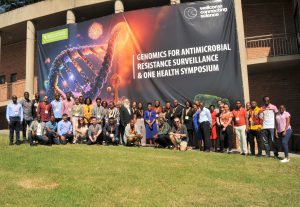Cancer is major health challenge facing health systems in both developing and developed countries. The World Health Organization estimates that globally more than 10 million people are diagnosed with cancer every year and projects that if we do not make the necessary interventions, these cases will increase to 15 million by the year 2020.

Prof Melvyn Freeman, Cluster Manager – Non-communicable Diseases, Department of Health
There is therefore a need to strengthen our surveillance systems and research in this area to ensure that we fully understand the challenge facing us and to inform the necessary policy interventions.
Despite cancer being a condition of great public health concern, it has not been a notifiable or a reportable condition in South Africa. As such, it became difficult to collect data relating to the conditions for purposes of research and to inform policy interventions. Planning and evaluation of cancer services requires that statistics on occurrence and outcome from the disease are available. Reliable statistics are also required by government bodies including the departments of health, home affairs and finance which need to know how many people develop and die from cancer, and it is critical information for the financial planning of many private sector bodies including medical aids, life insurance companies, pharmaceutical companies, private hospital groups and financial institutions.
The National Cancer Registry (NCR), a specialised division of the NHLS, has been collating cancer statistics for South Africa since its establishment in 1986. Reporting cancer data to the NCR was voluntary. However, reported cancer cases dropped in last 10 years due to concerns regarding patient confidentiality by some private laboratories. While these pathologists were keen to contribute data, they were reluctant to do so without authorisation.
Another obstacle in obtaining accurate and complete data was the fact that the NCR was a pathology-based registry and cancer was thus underreported. A pathology-based registry depends on definitive histological or cytological diagnoses of cancer by pathologists. There was thus under-reporting due to misses with clinical, biochemical and haematological diagnoses eg. cervix and breast cancer in rural areas, hepatocellular carcinoma and haematological malignancies.
A population-based cancer registry needed to be established to obtain more complete data.
These concerns were addressed and new legislation was introduced by Dr Aaron Motsoaledi, Minister of Health, on 26 April 2011 which requires all doctors and health facilities that confirm cancer cases to report their findings to the NCR. Data are made anonymous once received by NCR but patient names are needed initially to prevent duplication, exclude animals and define race.
The new legislation also allows for the establishment by the NCR of a population-based cancer registry. Such a registry should pick up all cancers regardless of method of diagnosis. Clinicians will be responsible for reporting cancer cases and hospital managers will be tasked with reporting all cancers diagnosed in a facility.
To download the cancer registration form click here…




